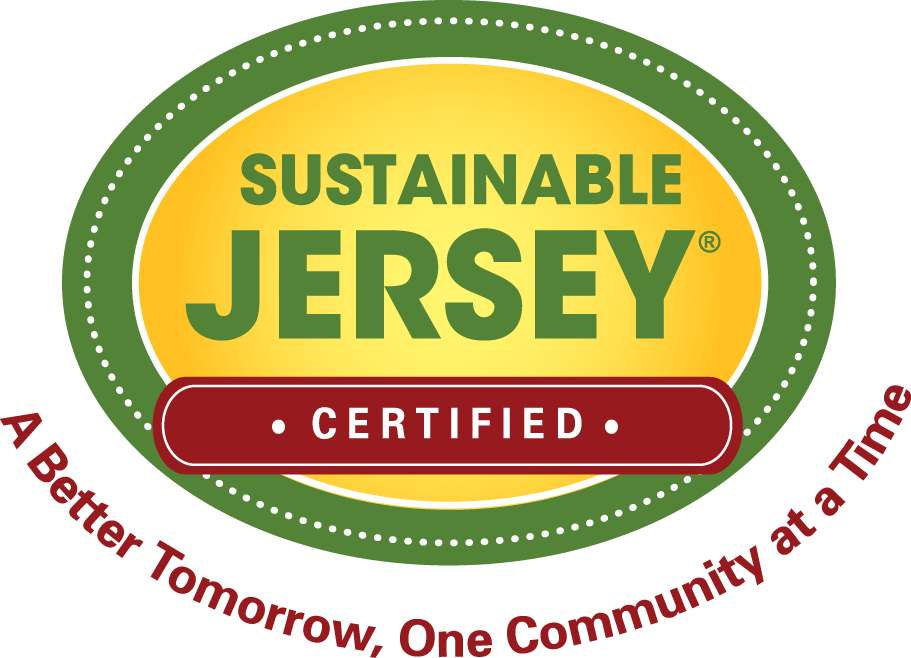Sustainable Jersey Research Reports & Guidebooks
Sustainability and Climate Adaptation Planning: An Integrated Guide for Highlands Region Municipalities
October 2024
In collaboration with the Highlands Council, and as a subconsultant to New Jersey Future, Sustainable Jersey authored Sustainability and Climate Adaptation Planning: an Integrated Guide for Highlands Region Municipalities, which is supplementary guidance developed by the Highlands Council to help municipalities in the Highlands region incorporate the provision of the Highlands Regional Master Plan (RMP) into their climate change planning. While the resource provides information specific to Highlands municipalities, it also serves as a model for any New Jersey municipality aiming to fully integrate their climate change-related hazard vulnerability assessment (CCRHVA) into the Land Use Plan Element of the municipal Master Plan, with a focus on sustainability. Additional guidance, support and grant funding is available to municipalities located in the New Jersey Highlands region. For a list of Highlands municipalities click here. For more information contact Highlands Council Environmental Scientist Sarah Friend, sarah.friend@highlands.nj.gov.
The Climate Change-Related Hazard Vulnerability Assessment Guide
October 2023
Working with the NJ Department of Environmental Protection, Sustainable Jersey, and statewide partners, New Jersey Future led development of the Guide, to provide a model Climate Change-Related Hazard Vulnerability Assessment (CCRHVA) and planning process for New Jersey Municipalities that satisfies the requirements of the 2021 MLUL amendment. This guide is intended as a foundational step for ongoing local climate adaptation planning and resilience efforts supported by the NJ Department of Environmental Protection and partner organizations. It is centered on a systems approach that provides a framework for evaluating vulnerability across five systems that support the municipality. The systems approach promotes resilience actions that are centered on long-term sustainability and enhancing the community’s adaptive capacity.
Municipal Engagement for People with Disabilities: Strategies for Communication and Inclusion
June 2022
Developed by the New Jersey Institute for Disabilities and Sustainable Jersey, in cooperation with the Progressive Center for Independent Living, DAWN Center for Independent Living, and Resources for Independent Living. This guide shares ways for municipal governments to effectively communicate with and engage persons with disabilities in decision-making and consensus building. Funded by an Inclusive Healthy Communities Grant from the Division of Disability Services, New Jersey Department of Human Services.
Jersey City Equity Profile: With analysis to support outreach to reduce lead exposure
January 2022
This report presents an equity profile of Jersey City, as a preliminary version of the Community Equity and Diversity Profile action in the Sustainable Jersey program. The report further examines how analyzing the profile data could contribute to understanding risks from lead exposure and how those risks are socially and spatially differentiated across Jersey City. The report concludes with a brief discussion of the ways in which an equity profile could be used to develop equitable and effective outreach and engagement strategies for the benefit and inclusion of diverse, marginalized, and vulnerable populations.
A Municipal Guide to a Lead-Safe Community
July 2021
Lead is a potent toxin which is still pervasive in the places where we live, play, work and raise our families. This is especially true in New Jersey, with its legacy of housing, infrastructure, and industry that pre-dates the banning of lead from paint, gas and plumbing. Young children who absorb even the smallest traces of lead suffer lifelong, pernicious effects – which are disproportionately experienced in communities of color and low-income communities.
Municipalities can do a great deal to support healthy, lead-safe homes and a healthy, lead-safe and equitable environment for their residents. A Municipal Guide to a Lead-Safe Community presents 18 practical strategies, including 8 Sustainable Jersey actions, that municipalities can implement today to reduce lead exposure and protect public health.
Advancing Social Equity through the Sustainable Jersey Program: Analysis and Potential
January 2020
This report documents the initial outcomes of the Sustainable Jersey equity initiative (2017-2019): a shared framework for understanding social equity; the results of a screen of the entire suite of actions for potential equity impacts; and a quantitative analysis of municipal certification and grant awards with respect to equity variables. It concludes with a discussion of next steps for comprehensively integrating social equity in the program in order to support municipalities to dismantle barriers to opportunity in their communities and across the state of New Jersey.
Statewide Change, One Community at a Time: A Comparative Study of Collaborative State-Local Sustainability Programs
April 2016
This study identifies twelve statewide programs across the U.S. that recognize local governments for achieving voluntary sustainability standards. Certification or other municipal rating systems are generally a signature element of these programs; yet, certification is often merely the most visible form of collective action among many aiming to coordinate priorities, policy, and resources among state and local, public and private actors.
Funded by the Surdna Foundation, this study was guided by a working group comprised of representatives of five state-local sustainability programs including: Minnesota GreenStep Cities, Sustainable Maryland, Sustainable Pennsylvania, Wisconsin Green Tier Legacy Communities and Sustainable Jersey. Key personnel from Green Cities California, Clean Energy Communities (CT), the Florida Green Building Coalition, Massachusetts Green Communities, Michigan Green Communities, Climate Smart Communities (NY) and Go Green Virginia also contributed to the report.
